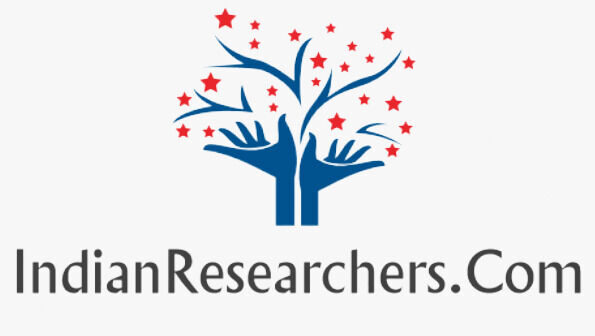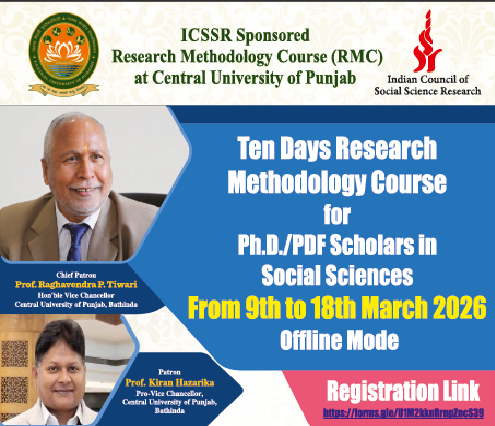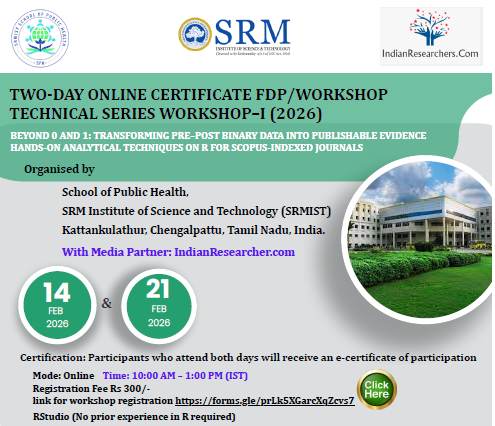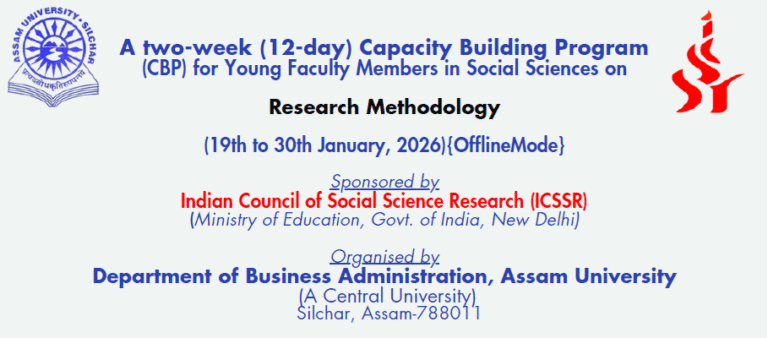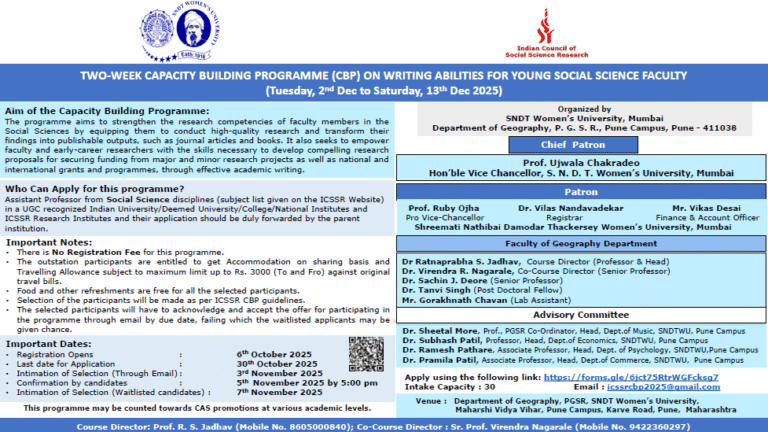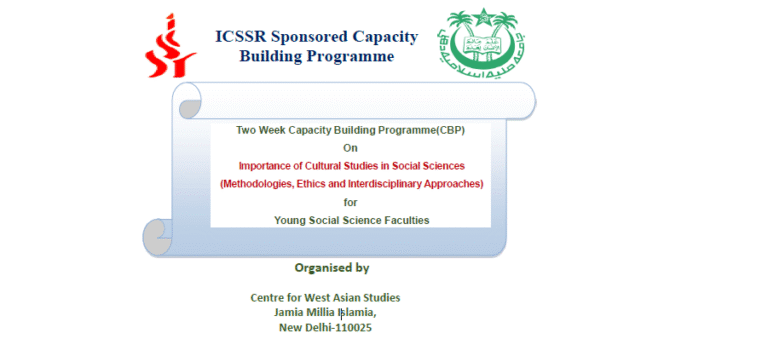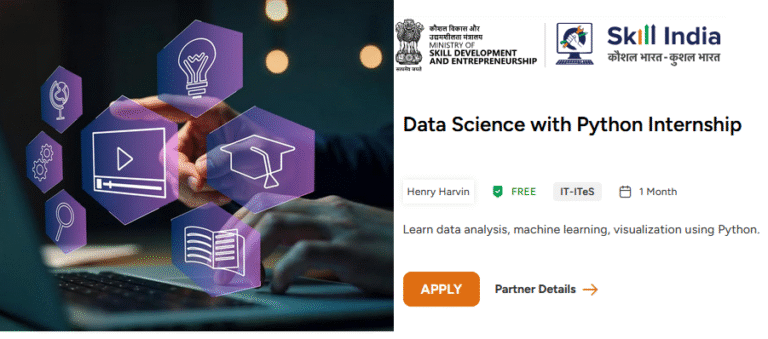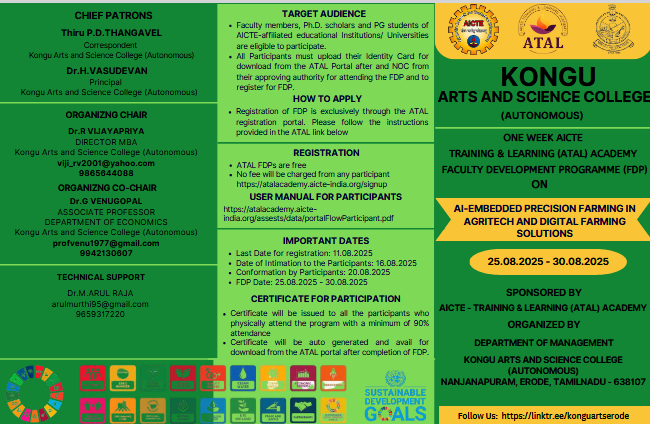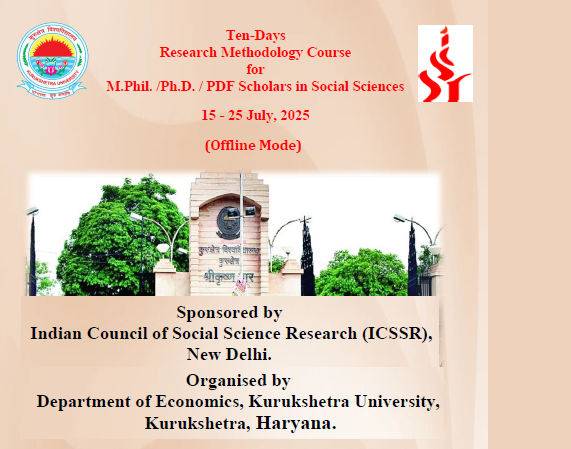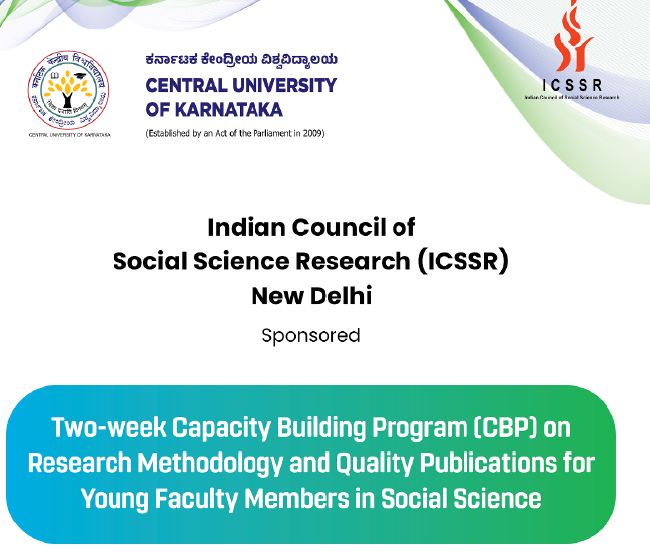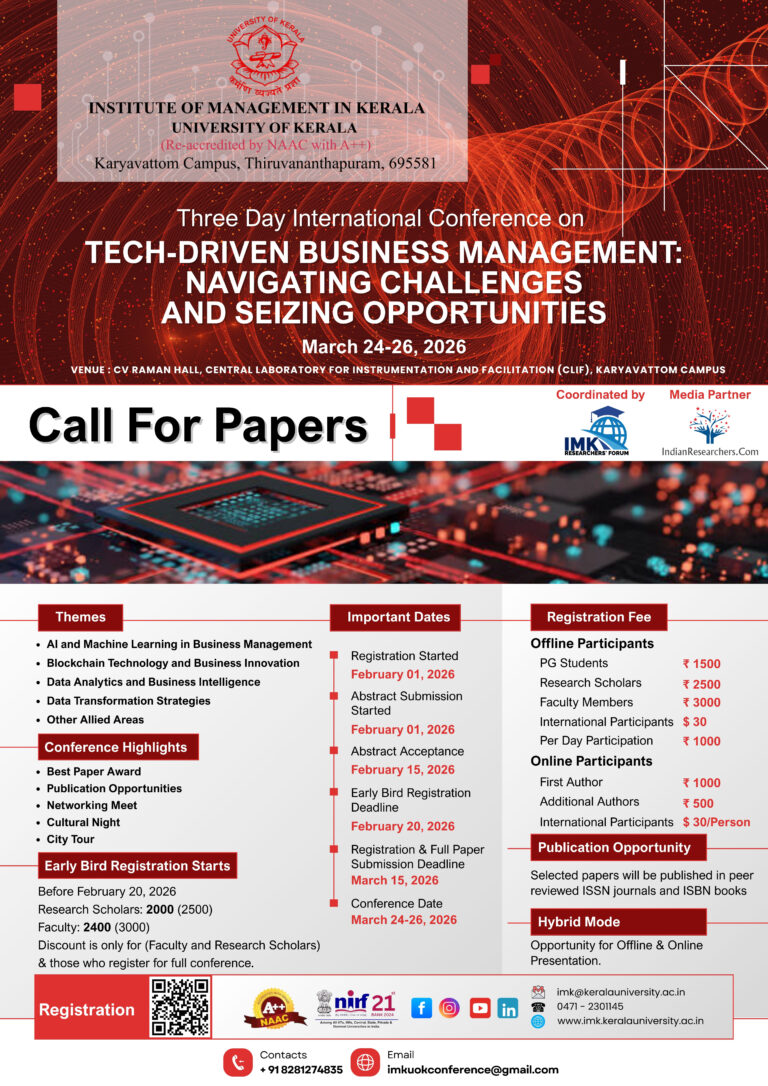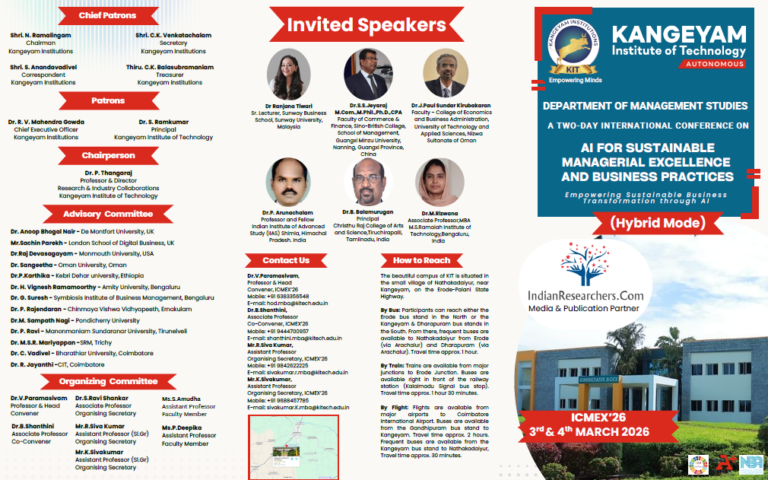The Department of Education, Central University of Punjab, Bathinda, is organizing a Ten Days Research Methodology Course...
FDPs
Transform Your Research: Master Pre-Post Binary Data Analysis for Scopus Journals SRMIST School of Public Health Announces...
Assam University, Silchar invites applications from eligible young faculty members for a prestigious Two-Week (12 Days) Capacity...
For young social science faculty across India, translating innovative research ideas into compelling publications and successful grant...
Calling all young social science academics! The Indian Council of Social Science Research (ICSSR) is sponsoring a transformative Two-Week...
Data Science with Python Internship OpportunityOrganizer: Henry Harvin in collaboration with NSDC/Skill India DigitalDuration: 1 MonthMode: OnlineFee: FREEApplication Link: Apply Here About...
Kongu Arts and Science College (Autonomous) is organizing a one-week Faculty Development Programme (FDP) focused on AI-Embedded...
The Department of Economics, Kurukshetra University, is pleased to announce an ICSSR-sponsored Ten-Days Research Methodology Course designed...
Objective of the courseThe proposed course aims to empower women research scholars by providing comprehensive training in...
Learning Outcomes of the CBP:On successful completion of the Capacity Building Programme(CBP), the participants will be able...
